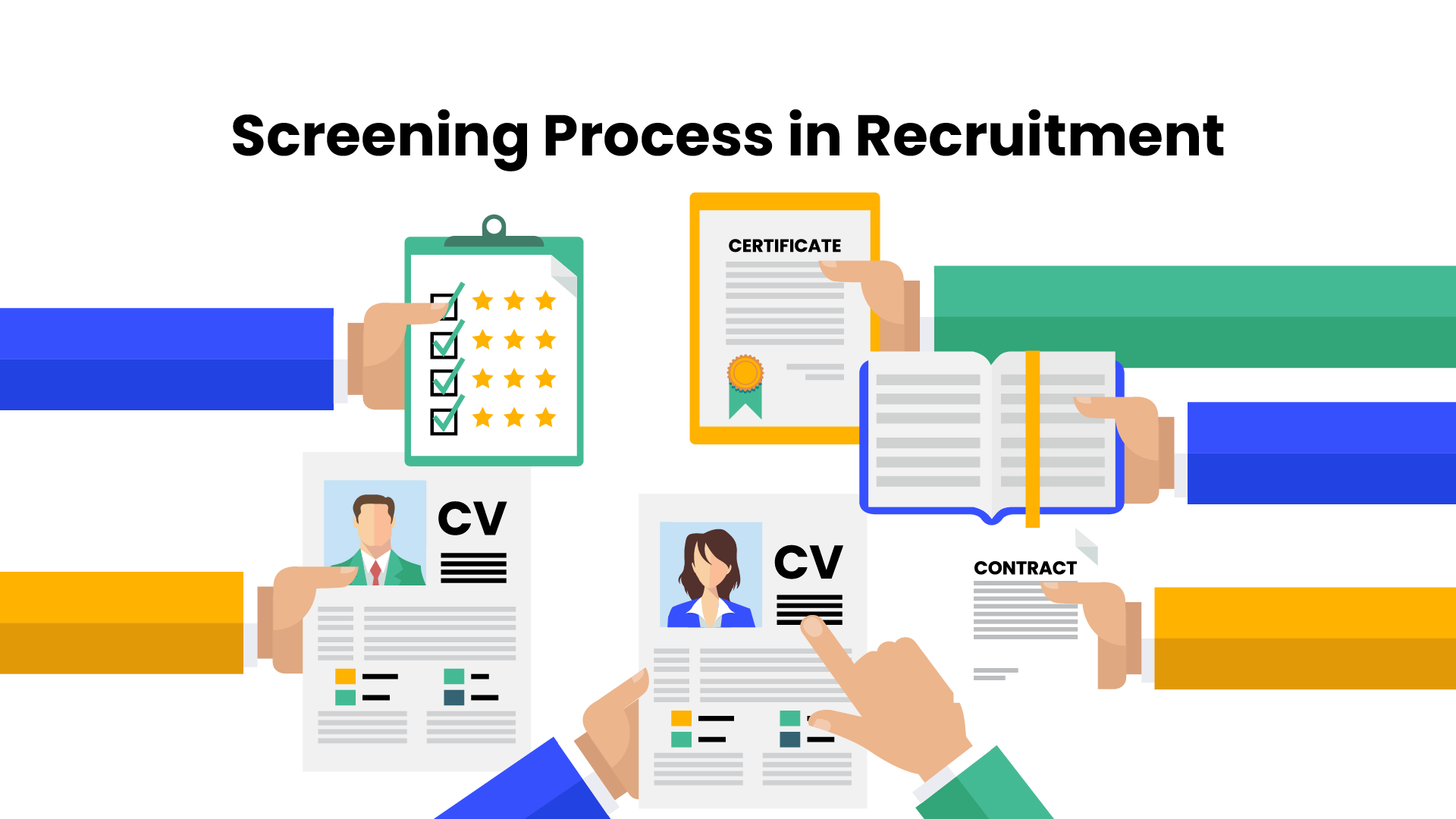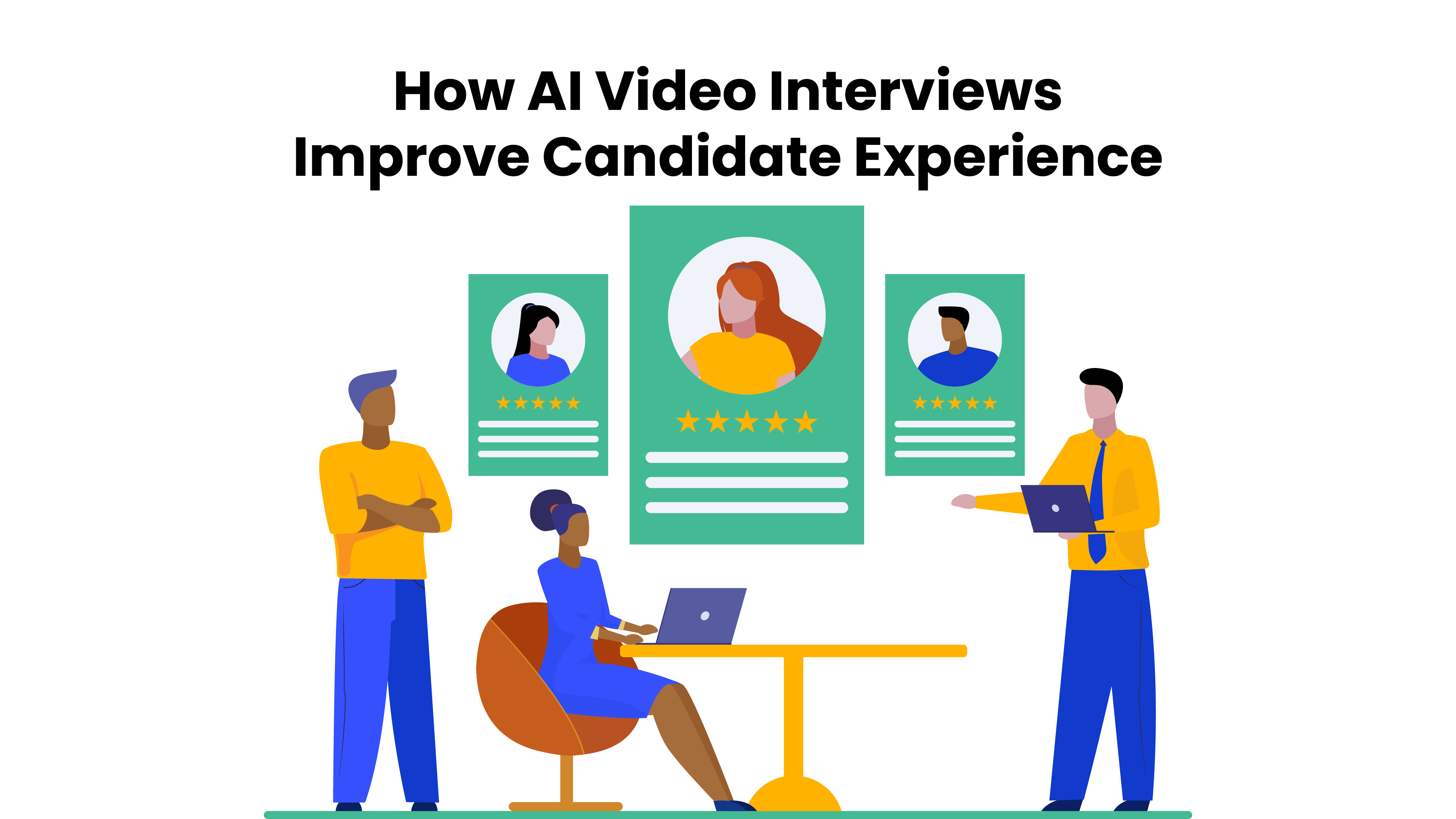
Learn the five most common screening methods, why they matter, and how the right tools help teams hire faster with clearer decisions.

Candidate experience matters. When hiring feels slow or confusing, it leaves a mark. About 60% of candidates report a negative experience, and nearly 3 out of 4 share it with others. Most say simple, clearer communication would have changed everything.
In a world of global applicants and fast mobile job searches, traditional screening just isn’t keeping up. That’s where AI video interviews come in: they make hiring faster, fairer, and far more candidate-friendly.
This article shows how AI video interviews improve candidate experience. You’ll see how they make hiring faster, clearer, and more comfortable for applicants.
An AI video interview is more than a basic recording tool. It uses technology to study how people answer interview questions. The system looks at words, tone, and sometimes facial movement to understand how someone communicates and performs.
These interviews are often used early in the hiring process. This is when companies receive many applications and need to find strong matches quickly. Candidates can record answers when it suits them, and the system reviews each video automatically.
The main strength of this approach is its fairness and consistency. The AI can create questions that fit the job and use the same scoring for everyone. It checks clarity and confidence while limiting the bias that often comes from human judgment.
See also: AI In Recruiting: How Intelligent Tools are Reshaping the Future of Hiring
In a one-way video interview, candidates see preset questions on screen and record their answers within a set time. When finished, the video is sent to HR for review. Recruiters then watch each recording manually and evaluate the responses.
The process is practical in theory but can feel limited in interaction. There is no real-time feedback or dialogue. Each reviewer may also interpret answers differently, which can lead to inconsistent evaluations.
AI video interviews handle this process differently. The system not only records answers but also studies them. It reviews tone, speech, timing, and expression to create a clearer picture of how candidates communicate and solve problems.
The AI then produces structured scores and summaries that HR can access immediately. Every candidate is measured using the same standard, reducing variation caused by individual judgment. This allows recruiters to make decisions based on consistent data.
AI interviews can also assess specific traits related to each role, such as communication, leadership, or customer interaction skills. This helps teams focus on candidates whose profiles fit the job requirements more closely.
A platform like KitaHQ automates this process by reviewing responses through structured questions and clear evaluation criteria. It helps ensure that every applicant experiences the same organized and fair process.
While one-way interviews mainly serve as recording tools, AI video interviews provide deeper analysis and more reliable comparisons. This makes the early stages of hiring more structured for both recruiters and candidates.
AI video interviews offer a modern, efficient, and candidate-friendly approach to recruitment. Here’s how AI video interviews elevate the candidate journey:
Candidates can complete their interviews whenever they feel most prepared, after work, during weekends, or even late at night. This flexibility reduces schedule conflicts and lowers stress, giving candidates greater control over the hiring process.
AI video interview platforms make it easier for international candidates to participate without barriers. Many systems now support multilingual interfaces, auto-translated instructions, automatic subtitles, accent and dialect adjustments.
This inclusivity ensures candidates feel respected and accommodated, regardless of their location or native language.
AI ensures that every candidate receives the same interview instructions, expectations, and technical guidance. This eliminates miscommunication and helps candidates understand exactly what will be evaluated, making the process more transparent and less intimidating.
AI is designed to assess content, competencies, and relevance, not appearance or background. By minimizing subjective bias, candidates feel they are being evaluated fairly and consistently, which significantly improves their perception of the employer brand.
Many candidates feel nervous during live interviews. AI video interviews create a calmer environment, because no intimidating eye contact and fewer external distractions. With less pressure, candidates can present their true abilities more confidently.
See also: 5 Best Multilingual Video Interview Software with AI-Powered Candidate Evaluation
As AI tools become part of hiring, they also bring new concerns. Candidates may question how their data is handled, how results are decided, and whether a system can assess people fairly. Issues such as privacy, transparency, and overuse of automation are important, especially when video and voice data are involved.
Employers should select AI platforms that follow clear ethical standards. These include meeting data protection laws, using secure encryption, and explaining what the system measures and why. Candidates need to know their data is safe and used only for hiring, not stored or shared without purpose.
Human involvement must remain central. AI can organize information and highlight strong applicants, but final decisions belong to people. The most reliable systems use automation to support fair and consistent hiring while keeping human judgment and empathy in place.
See also: The Legal and Ethical Implications of Using AI in Hiring: A Guide for HR Professionals
AI video interviews do more than save time. They bring structure and fairness to the hiring process while helping recruiters focus on people rather than routine tasks. For candidates, the experience feels organized, respectful, and responsive across locations and time zones.
When used carefully, AI creates balance in hiring. It adds speed without pressure and consistency without losing empathy. With the right mix of human judgment and technology, recruitment becomes clearer and more inclusive.
To improve your hiring process, explore AI video interview platforms such as KitaHQ. The system blends automation with fairness and helps create a hiring experience that respects both recruiters and candidates.
Ready to see it in action? Book a demo today and discover how AI video interviews can transform the way you hire.